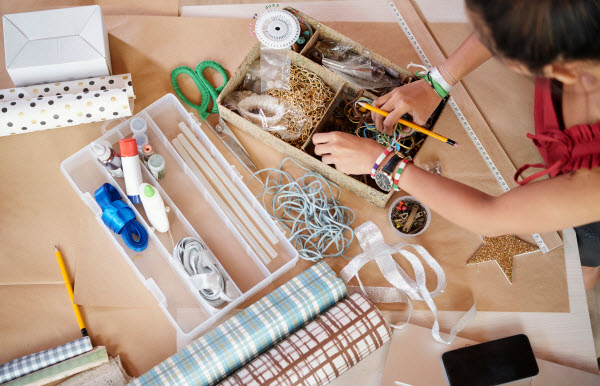
The season of festive cheer, giving and receiving, end-of-year functions and far too much indulgence is almost upon us.
The end of the year is always a bit ‘extra’ and requires an extra bit of money too.
Take a look at some of our tips for budgeting for the festive season.

Monthly budget review
From an expenses perspective, the festive season is the same as any other month. There will still be living expenses and bills to pay as part of your monthly budget. Hopefully, you will have kept a little savings aside at the end of every month that you’ll now be able to use to celebrate the season to be jolly and gift the ones you love.
Review your monthly budget and identify whether there are any savings over the festive period. Parents who may not be paying school fees for December or annual contracts that offer a festive season hiatus are areas that will provide these sorts of savings.

Make a list
We know it’s a hack, but trust us, you’ll feel better for it once you do it. Making a list helps you plan, and doing it early will allow you to analyse your budget limits to know what you can and can’t spend. It is vital for you to stick to the limits you set for yourself, otherwise you’ll find yourself in financial trouble.
Divide your list into events, gifts and holiday.
Under events, list all the end-of-year parties or functions planned – at work and with family and friends.
Identify whether you need to gift anyone at these events and whether there are specific themes you need to be mindful of. Secret Santa at a capped budget is always a great party starter and helps keep budgets tight.
Under gifts, list the gifts that you will need to plan. Itemise these under close family, extended family and friends. If you have children, get them to jump on those Father Christmas lists sooner rather than later. Allocate a budget amount to each person you’ll be buying for.
When planning your holiday budget, list your accommodation and transport costs. If you’re planning to stay at an all-inclusive or half-board facility, consider the budget you’ll need for incremental meals or days out. If you’re planning to stay at self-catering accommodation, divide your monthly food budget between home and when you’ll be on holiday.

Get creative
Time is one of, if not the most valuable asset. We all love receiving gifts that someone has taken the time to make, and you don’t need to be a crafting prodigy to put these together.
Home-grown succulents in old painted tins or jars with freshly spray-painted lids or healthy snacks for your gym-loving brother-in-law are ways to get creative with your gifts.
Pinterest has thousands of homemade gift ideas for the novice homemade gift giver through to the crafting wunderkind. Gifts made by the kids are always well received, so perhaps consider planning holiday crafting projects for your little (and big) ones.

Beware of bargains
Don’t get caught up in festive hysteria. When braving the stores, you will be bombarded with sales and ‘buy more for less’ offers. Firstly, these may not be at the lowest price, so do your research, and secondly, if they’re not on your list, don’t buy them.
Don’t ignore the loyalty points you’ve been collecting all year too. Some stores have super products you can redeem using your loyalty points.
Consider a tracking app
If you’re not already on your bank’s tracking app, look at what’s available from your App or Play Store. Downloading an app will help you keep a detailed spending record and alert you when you get carried away.
It will also help you reshuffle budgets if you need to due to unforeseen circumstances.
The festive season is a wonderful time of year. It’s full of joyous occasions and family fun, so tell Ebenezer Scrooge to stay at home.
Plan your festive spending and stick to it. If you need help, speak to one of our financial planning experts.
Our financial service includes advice on:
- Budgeting
- Debt management/debt reduction
- Superannuation
- Retirement planning
- Asset finance
- Direct share portfolios and research
- Investments
- Property investment advice
- Personal and business insurance
- Risk insurance
- Aged Care Advisory Services
Read more financial advice blogs.
